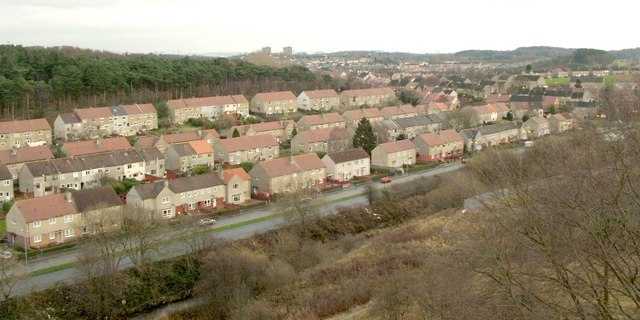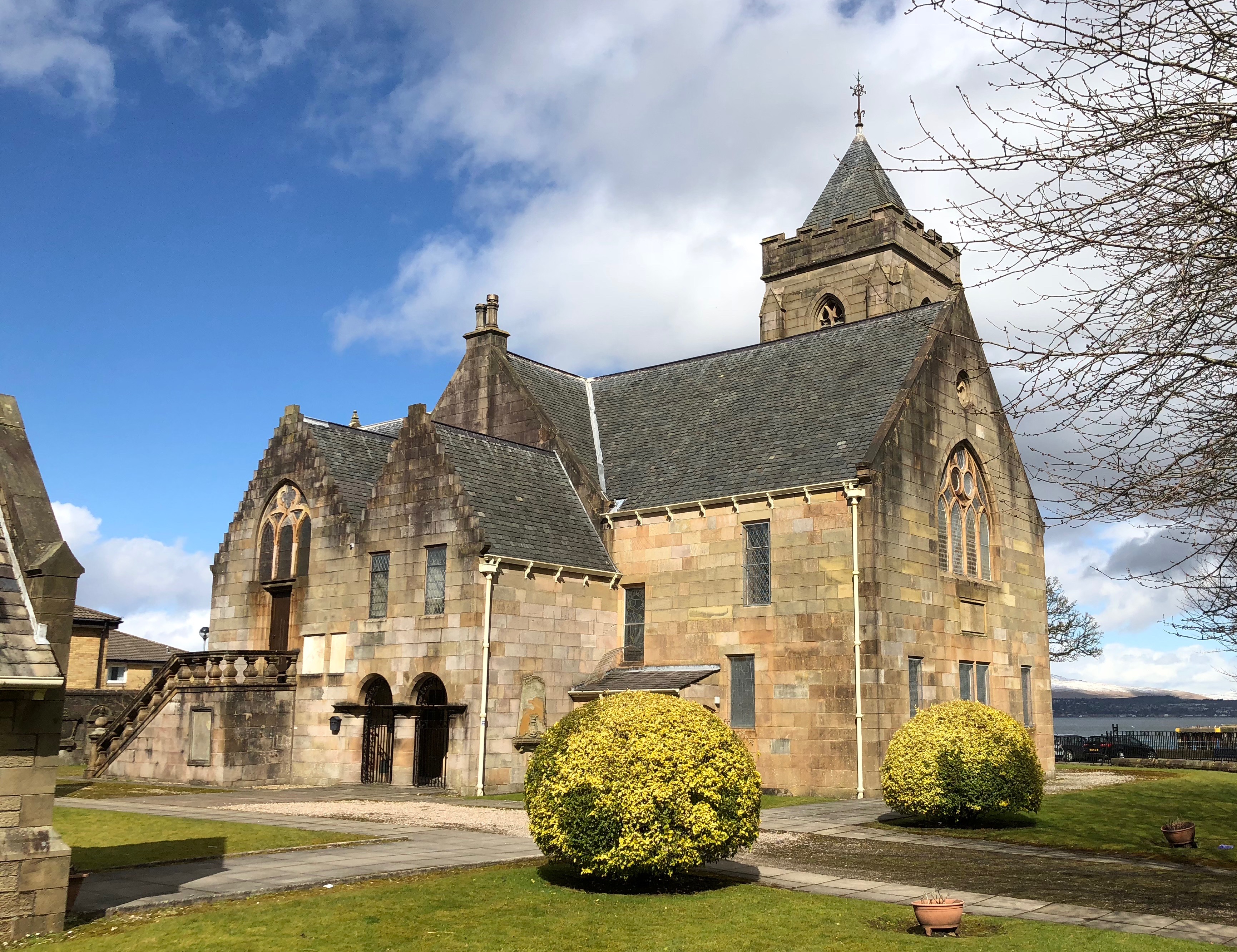|
Sir John Maxwell F.C.
Sir John Maxwell Football Club was a Scottish football team, based in Pollokshaws, now part of Glasgow (at the time a separate burgh). History The club was founded in 1879, and with 30 members in 1881 was the smallest senior side in Renfrewshire (joint with Glenpatrick). It was named in honour of a local philanthropist who had died two decades before. The club entered the Renfrewshire Cup from 1880–81 to 1883–84, reaching the quarter-final in 1881–82 thanks to a bye and one of the club's two wins in the competition; the Sir John protested its defeat by Cartvale at that stage, to no avail. Its last tie was against Johnstone Athletic in the first round in 1883, and with Sir John Maxwell 6–3 up, the Athletic walked off; the match nevertheless was replayed, and the Sir John won with an extra-time goal, but Athletic successfully protested that the Sir John had arrived 25 minutes late - despite being at home - so the Sir John was disqualified. Its Scottish Cup recor ... [...More Info...] [...Related Items...] OR: [Wikipedia] [Google] [Baidu] |
Association Football
Association football, more commonly known as football or soccer, is a team sport played between two teams of 11 players who primarily use their feet to propel the ball around a rectangular field called a pitch. The objective of the game is to score more goals than the opposition by moving the ball beyond the goal line into a rectangular framed goal defended by the opposing side. Traditionally, the game has been played over two 45 minute halves, for a total match time of 90 minutes. With an estimated 250 million players active in over 200 countries, it is considered the world's most popular sport. The game of association football is played in accordance with the Laws of the Game, a set of rules that has been in effect since 1863 with the International Football Association Board (IFAB) maintaining them since 1886. The game is played with a football that is in circumference. The two teams compete to get the ball into the other team's goal (between the posts and under t ... [...More Info...] [...Related Items...] OR: [Wikipedia] [Google] [Baidu] |
Port Glasgow Athletic
Port-Glasgow Athletic was a football club based in Port Glasgow, Scotland. The club was formed in 1878 and originally named Broadfield before changing their name in 1881. They played in the Scottish Football League between 1893 and 1911, and were based at Clune Park. Originally the town name was spelled Port-Glasgow, with a hyphen, this style was dropped after WW2. History Originally based at Devol Farm, Port Glasgow, the club moved to a new ground called Clune Park on the town's Glasgow Road. The Port played for one season in the Scottish Football Alliance in 1891–92 and spent 1892–93 playing cup-ties and friendlies. They rejoined the Scottish Alliance for 1893–94, but before the new season, the Alliance was more or less absorbed by the Scottish Football League as its Division Two. During their first season in the Scottish League they had a record seven points deducted for rule infringements. For a time this left the club at the foot of the Division with −2 points. Af ... [...More Info...] [...Related Items...] OR: [Wikipedia] [Google] [Baidu] |
1879 Establishments In Scotland
Events January–March * January 1 – The Specie Resumption Act takes effect. The United States Note is valued the same as gold, for the first time since the American Civil War. * January 11 – The Anglo-Zulu War begins. * January 22 – Anglo-Zulu War – Battle of Isandlwana: A force of 1,200 British soldiers is wiped out by over 20,000 Zulu warriors. * January 23 – Anglo-Zulu War – Battle of Rorke's Drift: Following the previous day's defeat, a smaller British force of 140 successfully repels an attack by 4,000 Zulus. * February 3 – Mosley Street in Newcastle upon Tyne (England) becomes the world's first public highway to be lit by the electric incandescent light bulb invented by Joseph Swan. * February 8 – At a meeting of the Royal Canadian Institute, engineer and inventor Sandford Fleming first proposes the global adoption of standard time. * March 3 – United States Geological Survey is founded. * March 11 – The Ry ... [...More Info...] [...Related Items...] OR: [Wikipedia] [Google] [Baidu] |
Association Football Clubs Disestablished In 1884
Association may refer to: *Club (organization), an association of two or more people united by a common interest or goal *Trade association, an organization founded and funded by businesses that operate in a specific industry *Voluntary association, a body formed by individuals to accomplish a purpose, usually as volunteers Association in various fields of study *Association (archaeology), the close relationship between objects or contexts. *Association (astronomy), combined or co-added group of astronomical exposures *Association (chemistry) *Association (ecology), a type of ecological community *Genetic association, when one or more genotypes within a population co-occur *Association (object-oriented programming), defines a relationship between classes of objects *Association (psychology), a connection between two or more concepts in the mind or imagination *Association (statistics), a statistical relationship between two variables *File association, associates a file with a so ... [...More Info...] [...Related Items...] OR: [Wikipedia] [Google] [Baidu] |
Football Clubs In Glasgow
Football is a family of team sports that involve, to varying degrees, kicking a ball to score a goal. Unqualified, the word ''football'' normally means the form of football that is the most popular where the word is used. Sports commonly called ''football'' include association football (known as ''soccer'' in North America and Australia); gridiron football (specifically American football or Canadian football); Australian rules football; rugby union and rugby league; and Gaelic football. These various forms of football share to varying extent common origins and are known as "football codes". There are a number of references to traditional, ancient, or prehistoric ball games played in many different parts of the world. Contemporary codes of football can be traced back to the codification of these games at English public schools during the 19th century. The expansion and cultural influence of the British Empire allowed these rules of football to spread to areas of British in ... [...More Info...] [...Related Items...] OR: [Wikipedia] [Google] [Baidu] |
Defunct Football Clubs In Scotland
Defunct (no longer in use or active) may refer to: * ''Defunct'' (video game), 2014 * Zombie process or defunct process, in Unix-like operating systems See also * * :Former entities * End-of-life product An end-of-life product (EOL product) is a product at the end of the product lifecycle which prevents users from receiving updates, indicating that the product is at the end of its useful life (from the vendor's point of view). At this stage, a ... * Obsolescence {{Disambiguation ... [...More Info...] [...Related Items...] OR: [Wikipedia] [Google] [Baidu] |
Pollokshaws F
Pollokshaws ( sco, Powkshaws) is an area on the South side of the city of Glasgow, Scotland. It is bordered by the residential neighbourhoods of Auldhouse to the east, Eastwood and Hillpark to the south and Shawlands to the north, with the Glasgow South Western Line railway and the open lands of Pollok Country Park to the west. The White Cart Water flows through the area. The housing stock consists of some sandstone tenement housing, modern brick tenement-style buildings, low-rise social housing and high rise/multi-storey tower blocks. Previously eight tower blocks stood in an area known as the Shawbridge Corridor; the last of these blocks was demolished in March 2016. Four other tower blocks remain, near Pollokshaws East railway station. According to the 2001 Census, Pollokshaws had a population of 4,295. Its residents are a mixture of working class and middle class social groups, and the area also had a large South Asian community. History Pollokshaws was originally a v ... [...More Info...] [...Related Items...] OR: [Wikipedia] [Google] [Baidu] |
Pollok F
Pollok ( gd, Pollag, lit=a pool, sco, Powk) is a large housing estate on the south-western side of the city of Glasgow, Scotland. The estate was built either side of World War II to house families from the overcrowded inner city. Housing 30,000 at its peak, its population has since declined due to the replacement of substandard housing with lower-density accommodation. The main features of the area are the nearby Pollok Country Park, where the Burrell Collection is now housed, the ruins of Crookston Castle (within the north part of residential Pollok) which Mary, Queen of Scots once visited, and the Silverburn Centre, one of Glasgow's major indoor retail complexes. Location The country park and the White Cart Water which flows through it form the northern and eastern boundary of the district, with Corkerhill and Cardonald the closest northern suburbs. Recent developments in the late 20th and early 21st century have created an adjoining neighbourhood to the west of P ... [...More Info...] [...Related Items...] OR: [Wikipedia] [Google] [Baidu] |
Scottish Football Association
The Scottish Football Association (also known as the SFA and the Scottish FA; sco, Scots Fitba Association; Scottish Gaelic: ''Comann Ball-coise na h-Alba'') is the governing body of football in Scotland and has the ultimate responsibility for the control and development of football in Scotland. Members of the SFA include clubs in Scotland, affiliated national associations as well as local associations. It was formed in 1873, making it the second oldest national football association in the world. It is not to be confused with the Scottish Football Union, which is the name that the SRU was known by until the 1920s. The Scottish Football Association, along with FIFA and the other British governing bodies, sits on the International Football Association Board which is responsible for the laws of the game. The SFA is also a member of FIFA and founder member of UEFA. It is based at Hampden Park in Glasgow. In addition, the Scottish Football Museum is located there. The Sc ... [...More Info...] [...Related Items...] OR: [Wikipedia] [Google] [Baidu] |
Greenock Northern F
Greenock (; sco, Greenock; gd, Grianaig, ) is a town and administrative centre in the Inverclyde council area in Scotland, United Kingdom and a former burgh within the historic county of Renfrewshire, located in the west central Lowlands of Scotland. It forms part of a contiguous urban area with Gourock to the west and Port Glasgow to the east. The 2011 UK Census showed that Greenock had a population of 44,248, a decrease from the 46,861 recorded in the 2001 UK Census. It lies on the south bank of the Clyde at the "Tail of the Bank" where the River Clyde deepens into the Firth of Clyde. History Name Place-name scholar William J. Watson wrote that "Greenock is well known in Gaelic as Grianáig, dative of grianág, a sunny knoll". The Scottish Gaelic place-name ''Grianaig'' is relatively common, with another (Greenock) near Callander in Menteith (formerly in Perthshire) and yet another at Muirkirk in Kyle, Ayrshire, Kyle, now in East Ayrshire. R. M. Smith in (1921) descri ... [...More Info...] [...Related Items...] OR: [Wikipedia] [Google] [Baidu] |
1883–84 Scottish Cup
The 1883–84 Scottish Cup was the 11th season of Scotland's most prestigious football knockout competition. Queen's Park won the competition for the seventh time after Vale of Leven could not field a team on the date fixed for the final due to player illness. Dumbarton became the first defending champions to unsuccessfully retain the cup after they were knocked out in the first round by Renton. Calendar *Edinburgh University were given a bye to the third round. *Two teams qualified for the second round after drawing their first round replay. ;Notes Teams All 132 teams entered the competition in the first round. First round Cowlairs, Coupar Angus, Drumlanrig Rangers, Newcastleton and Vale of Avon received a bye to the second round. Edinburgh University received a bye to the third round. Matches Replays ;Notes Second round Cumnock, Hamilton Academical, Morton, St Bernard's and Vale of Leven ... [...More Info...] [...Related Items...] OR: [Wikipedia] [Google] [Baidu] |





